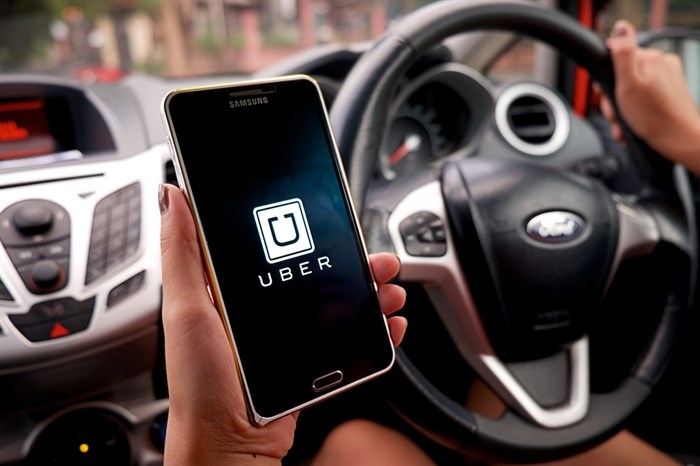
Image Credit: Shutterstock
February 12, 2022 - 8:00 AM
Eight ride-hailing companies have been given the green light to start picking up passengers in B.C.'s Southern Interior, but that doesn't mean their drivers are on the road.
Many have heard of multi-national ride-hailing giants like Uber and Lyft, the former having just recently been denied an expansion into Kelowna, but there are smaller players in the industry already pegged to expand into the area.
Companies like ReRyde, Uride, Lucky To Go and Kabu Ride have all been approved in the region between February 2020 and January 2021.
Jamil Chauhdry, chief operating officer for ReRyde, points to B.C.'s licence requirements for ride-hailing drivers to blame.
"(The Province) kind of manipulated the market," he said, referring to licence requirements. "I have spent lots of money in Kelowna with nothing to show for it."
READ MORE: Kelowna mayor plans to fight province's decision to deny Uber expansion
ReRyde spent around $25,000 to advertise in Kelowna but found just 20 drivers willing to sign on and only five in Kamloops.
In B.C., drivers in the gig economy must carry the same Class 4 licence as required for taxi drivers. It requires a separate road test and allows them to carry passengers for commercial purposes.
In Manitoba, however, drivers only need a Class 5 licence and will adjust their insurance for commercial purposes. Chaudhry said ReRyde has a strong presence in Winnipeg and attributes it to the more relaxed regulation. He acknowledged in Vancouver and the Lower Mainland region, larger companies like Uber and Lyft have been successful but he said smaller markets like Kelowna drastically reduce the pool of drivers available.
Since 2018, the amount of drivers in B.C. with a Class 4 licence has increased from 42,000 to 44,000 at the end of 2020, according to ICBC data.
Ontario-based company Uride is making strides to move into Kamloops and Kelowna despite licence regulations. Uride operates in smaller Ontario cities like North Bay, Thunder Bay and Sioux St. Marie, and its founder said the province's relaxed regulation on its drivers made it easier to sign up drivers.
READ MORE: Kelowna’s record year for building permits rivals Surrey
Uride founder and CEO Cody Roberto said the restrictions "definitely make it harder to operate in certain markets."
"The easier it is for drivers to get on board without compromising safety, the more drivers you're going to get," Roberto said.
However, COVID likely had a much greater effect on the ride hailing economy than licence requirements.
Most ride-hailing companies approved to operate in regions outside the Lower Mainland were given the green light during the COVID-19 pandemic or shortly before the pandemic. The health restrictions left ICBC to postpone road tests from March to June 2020. When the tests began again, public health measures and an increase in demand then kept ICBC catching up to the road test backlogs into this winter.
The Province recently denied Uber's attempts to expand into Kelowna, leaving Mayor Colin Basran outraged. However, part of the reason for the decision from the Passenger Transportation Board to deny was because eight other companies were already approved for the region.
"Granting this application may be harmful to existing (ride hailing) licensees who have been unable to start up because of the decline in passenger demand due to COVID-19," the Uber decision from Dec. 14, 2021 reads.
READ MORE: Almost 900 Interior Health employees terminated due to vaccine mandate
The decision also noted that while international companies like Uber and Lyft have access to funding that would help ride out the economic impacts of COVID, some of the smaller companies in the B.C. market are not so lucky. That has left the smaller companies to delay their entry to cities like Kelowna and Kamloops.
Lucky To Go is a ride hailing company based in Victoria which has operated in Kelowna since 2020, with plans to expand into several other B.C. cities.
In order to convince drivers to enter the ride hailing industry, Uride has started an incentive campaign for Kamloops and Kelowna. Roberto said that while it's not uncommon for them to incentivize potential drivers when moving into a new market, the new efforts in B.C. have been "aggressive."
He said Uride has had around 100 drivers apply since it began the incentive campaign which includes a $500 sign on bonus and covers other start up costs like driver abstracts and vehicle inspections.
The class 4 licence can cost up to $130 for drivers upgrading from a class 5.
To contact a reporter for this story, email Levi Landry or call 250-819-3723 or email the editor. You can also submit photos, videos or news tips to the newsroom and be entered to win a monthly prize draw.
We welcome your comments and opinions on our stories but play nice. We won't censor or delete comments unless they contain off-topic statements or links, unnecessary vulgarity, false facts, spam or obviously fake profiles. If you have any concerns about what you see in comments, email the editor in the link above.
News from © iNFOnews, 2022